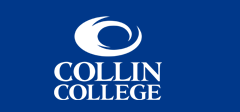Abstract
The Effectiveness of Forensic Science
Research in progress for CRIJ 1301: Introduction to Criminal Justice
Faculty Mentor: Stefanie LeMaire
Sarah Ciuffetelli uses critical thinking to examine the effectiveness of forensic sciences during criminal investigations. The assignment requires students to find the most prominent scholarly research in forensic sciences and discuss its efficacy. Further, the research leads students to discuss the potential limitations investigators must consider when examining forensic evidence. Lastly, students find at least six scholarly sources to provide an in-depth analysis of the research.
Sarah begins by discussing the history of forensic science and the ever-increasing technology used in criminal investigations. She discusses some of the limitations and concerns surrounding bite mark analysis, arson investigations, hair comparisons, and their use during criminal prosecutions. Beety & Oliva (2019) highlighted the questionable evidence regarding arson investigations because of the lack of qualifications of its investigators. Also, hair comparisons have limitations because there is quite a bit of subjectivity used during the analysis, leading to reliability issues (Mills et al., 2018). Sarah also features the significance of Garrett & Neufeld’s (2009) research that suggests that one bite mark may not be unique enough to match only one human being to its bite mark. She concludes the discussion with suggestions for improvement, such as compiling improved data for wrongful convictions so that criminal justice agencies can better examine any deficiencies with these forensic science methods and their relationship, if any, to exonerations.
Recommended Citation
Ciuffetelli, Sarah
(2023)
"Unreliable Forensic Science,"
Quest: Vol. 7, Article 2.
Available at:
https://digitalcommons.collin.edu/quest/vol7/iss1/2





Faculty Mentor
Professor LeMaire
slemaire@collin.edu